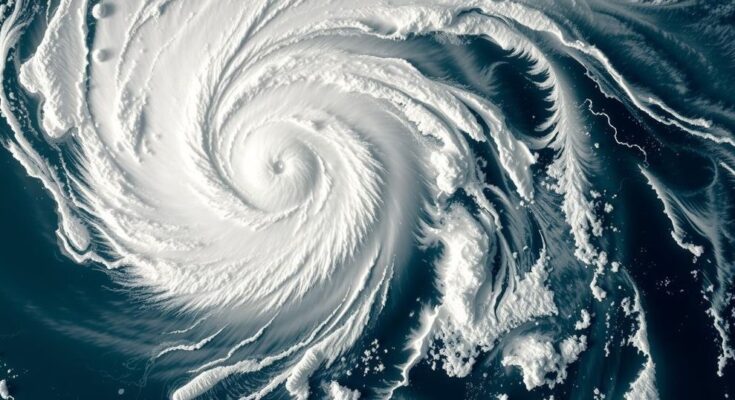Tropical Cyclone Dikeledi has brought severe weather conditions to Madagascar and Mayotte, killing at least three in Madagascar and displacing thousands. The storm struck shortly after Cyclone Chido, compounding existing challenges for the region. Officials expect Dikeledi to strengthen as it moves southward, raising fears of continued heavy rainfall and flooding across affected territories.
Tropical Cyclone Dikeledi has wreaked havoc across Madagascar and the surrounding areas, marking another major storm after the previous devastation caused by Cyclone Chido less than a month earlier. Reports indicate that at least three fatalities occurred in Madagascar due to heavy rainfall and ensuing floods attributed to Dikeledi. Furthermore, more than 15,000 individuals have been displaced across northern Madagascar, while approximately 20,000 residents in Mayotte have been forced to evacuate their homes.
Despite a weakening of Cyclone Dikeledi before its impact on Mayotte, the territory continued to experience significant winds and flooding on January 12, causing infrastructure damage in areas like the village of Mbouini. One resident, Massa, expressed concerns about the ongoing threat, noting, “We’re only in the middle of the rainy season, so we don’t know what’s going to happen between now and February or March.” Notably, there have been no reported casualties in Mayotte following this storm.
The region remains under threat as Cyclone Dikeledi is expected to gain strength while traversing southward through the Mozambique Channel. The European Civil Protection and Humanitarian Aid Operations (ECHO) forecasted heavy rains and strong winds across Madagascar, Mayotte, Comoros, and Mozambique in the coming days. The aftermath of Cyclone Chido, the strongest tropical cyclone to hit Mayotte in over 90 years, had already resulted in at least 36 deaths in the territory.
The local government has acknowledged the precarious situation in Mayotte. “The territory is very fragile,” remarked Francois-Xavier Bieuville, the prefect of Mayotte. Response efforts are currently underway, with humanitarian assistance being provided to affected families to mitigate the disaster’s impact.
Tropical cyclones pose significant threats to the Indian Ocean territories, frequently resulting in loss of life and extensive damage due to heavy rainfall and flooding. Cyclone Dikeledi is part of a series of storms that have recently impacted Madagascar and its surrounding islands, including Mayotte, which has already suffered from the destructive effects of Cyclone Chido. The ongoing rainy season raises concerns about further severe weather and the potential for more disasters. The region’s infrastructure, often inadequate, exacerbates the impact of such natural calamities.
In conclusion, Cyclone Dikeledi has caused extensive disruption and distress, further exacerbating the challenging conditions faced by Madagascar and Mayotte after Cyclone Chido. With thousands displaced and ongoing threats from the tropical storm, concerns about future storms loom large as humanitarian efforts strive to alleviate some of the immediate impacts. Continuous monitoring and response are crucial to safeguarding the vulnerable populations in these storm-prone areas.
Original Source: news.mongabay.com




